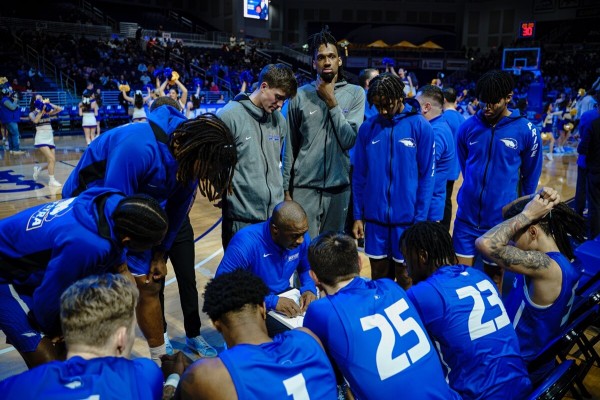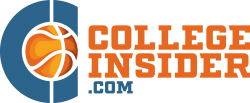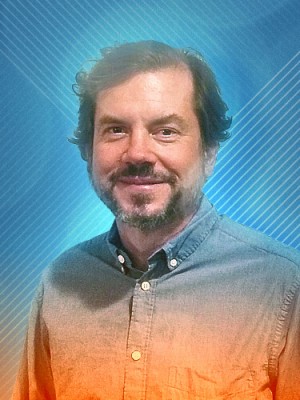Point of Change
Coast To Coast : Point of Change

Speedy Claxton led Hofstra, in its final run as the Flying Dutchmen, to the 2000 NCAA tournament. He played for five NBA teams in the next decade. His number is retired at Hofstra and he’s in the university’s athletics Hall of Fame.
His players, in particular the guards, listen to him because they know where he’s been and want what he had. Hofstra guards have won the last three CAA Player of the Year awards - and nine of the last 18.
So it’s not necessarily difficult to play point guard for Speedy Claxton. But it’s not always easy either.
On Jan. 14th, Hofstra’s season seemed to be slipping away.
The Pride had lost seven of nine games and at 1-3 in the CAA, were buried in the bottom tier of the 14-team conference.
Hofstra had developed a terrible habit of creating a double-digit deficit in the first half. Sure, they’d rally, close the gap to a possession or two but couldn’t complete the comebacks.
The talent on the roster was obvious. Although the nonconference schedule had been challenging, including trips to Duke, St. John’s and UNLV (and a 19-point thrashing of American champion South Florida), the 8-9 overall record was disappointing.
Claxton knew things had to change.
His first move was strategic, obvious to any observer. Hofstra started defending opponents in the fullcourt. He’d been reluctant to use the tactic initially because of Hofstra’s reliance on its starters. The Pride is 338th (out of 362 Division I teams) in minutes played by its reserves.
“It forces you to expend energy,” Claxton said. “Before that we were picking up halfcourt. But fullcourt forced the kids to play hard. It’s what changed our season around.”
Later on, Claxton corrects himself. What really changed Hofstra’s course was the second move: a man-to-man, guard-to-guard, time-to-get-real talk with point guard Jaquan Carlos in Claxton’s office shortly after a 69-68 loss at Campbell on Jan. 13th.
Claxton saw something he didn’t like before that game began.
“Usually I don’t go onto the court before the game,” Claxton said. “But being that it was Campbell and our first time there, I decided to go out there and see the court and arena. None of my players were out there at first and then they slowly started to come out. JaQuan came out and the first thing he did was sit down on the bench. I didn’t say anything, I just watched. Thinking, ‘why is he sitting on the bench? We have a game, start getting warmed up.’ So I waited a couple more minutes but then it kinda bothered me. So I told one of my assistants to tell him to start warming up. Then I went back into the locker room.”
Carlos had his worst game of the season - three points on 1 of 12 shooting, just two assists. But perhaps more revealing, he played only 27 minutes. He’s played more in all but one other D1 game this season. Carlos averages 34.5 minutes each night. The coach controls playing time.
Claxton invited Carlos to the office after they returned to Hempstead. The player and coach have a great relationship. Carlos calls him Speedy. There’s a little yelling during their interactions but more smiling and joking. This conversation took a serious turn.
“I asked him what was the first thing he did when he got onto the court at Campbell,” Claxton recalled.
“I got some shots up,” Carlos replied.
“No, you didn’t,” he told his point guard. “You went and sat on the sidelines. If you want to be a pro, you better start getting serious about this. You can’t take it for granted. When you go onto the court, you start warming up. You say you want to be a professional and take care of your family. Well, you can’t just talk the talk, you have to walk the walk.”
Claxton knew he’d be cheating Carlos if he didn’t hold him accountable for the goals and dreams his player had professed. Carlos listened, leaving the office in tears.
“But that was a real conversation we had and what we expressed in that office, it was serious,” Carlos said. “I know from having that conversation he just wanted the best for me.”
“He knows what it takes. For him to tell me he was disappointed in me and I wasn’t doing what I was supposed to do the right way, it was emotional. It was real tough hearing that. Not saying it was my fault (that we lost) but I played a big part and needed to step up if I wanted us to win.”
Claxton said he hasn’t said another word to Carlos about the leadership role Hofstra needed him to embrace. He hasn’t needed to. Again, the talent around him was clear. Their direction as a team was not.
His backcourt mate Tyler Thomas, named CAA Player of the Year earlier this week, is the nation’s third leading scorer (22.3 ppg).
D-stone Dubar, a 6-8 matchup nightmare, is one of the CAA’s most efficient players. He earned 2nd team All-CAA by averaging 18 ppg and 5.3 rpg in conference games.
What the Pride needed from Carlos, though, extended beyond columns in a box score. For all their oncourt production, neither Thomas nor Dubar is a vocal leader. Someone had to fill the void, and the point guard is a natural fit. Carlos, a junior, absorbed his coach’s message the moment he walked out of the office. He understood the veterans from last year’s regular season championship team were gone. It was his turn now.
“If I come out the right way, (Tyler and D-stone) are going to follow and everyone else is going to follow,” Carlos said. “He told me ‘This is your team, you have the intangibles to be the leader.’ When I left the meeting it was time to hit the reset button and really get it together. Step up and take full control.”
Hofstra won seven of the next eight games after the player-coach meeting, overcoming Thomas’ only shooting slump of the season to win the first three in the span.
About a week after he met with his coach, Carlos scored a career-high 23 points, fueling a late comeback in an 80-74 win at rival Stony Brook.
He set a Hofstra and CAA record with 19 assists on Feb. 17th as the Pride beat Northeastern by 20 points, exacting revenge for an earlier defeat.
On the season’s biggest stage 12 days later at UNCW, Carlos scored 18 points on 8-of-12 shooting, adding five rebounds, five assists and a backbreaking 3-pointer in a critical 69-58 victory. He also harassed UNCW’s third-team All-CAA point guard Shykeim Phillips into 4-for-14 shooting. The victory earned Hofstra the No. 3 seed and a double bye in the CAA tournament, meaning they need three wins in as many days to claim their second title in the last five years.
For his efforts, which include a team-high 48 steals, Carlos earned a place on the CAA All-Defensive team. If the voters put more value on on-ball defense, perhaps he’d be the defensive player of the year, which his coach believes he deserved.
Yet it was never the individual stats or accolades driving Carlos and his teammates. They lost in the CAA semifinals last season as the No. 1 seed. They want to experience March Madness, something the 2020 title team was denied because the NCAA tournament was canceled.
To put Hofstra in the best position to get there, he had to accept the responsibility of bringing his teammates along, in practice, in games, every day.
“He’s our leader, he’s our point guard,” Claxton said. “When he plays well, we win. He’s the ultimate team leader. All of our guys look to him and when he’s in a good headspace and ready to play he can motivate these guys and bode well. He’s our vocal and emotional leader.”
The sting has faded from the games Hofstra lost around the turn of the year. The lessons learned from them propelled the Pride to an 11-3 record since. The results Sunday through Tuesday in Washington D.C. will define the season and never be forgotten.
“Whatever happened in December and January, none of that matters anymore,” Carlos said. “You have to be playing your best basketball at the end of February going into March to be in the right place to go win these three games in three days.”
There will be time to sit down later on.



